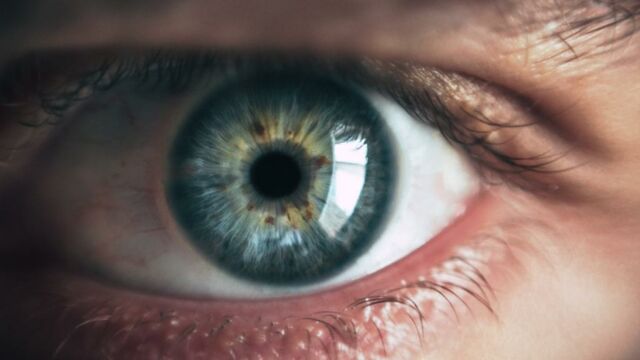Floaters, also known as ‘flying flies’ is a common condition in which spots and webs affect your field of vision. The phenomenon generally causes no pain and is not to be taken too seriously. However, in rare cases it can be unpleasant, uncomfortable, and quite worrying. But before we get on to that, let’s find out what this condition is and if you can get rid of the webs in your eyes.
Discover our latest podcast
What is myodesopsia?
Floaters, medically known as myodesopsia, are black or grey spots that look like flies, spider webs, circles, small fibres, or dots. These tiny filaments move across your field of vision, but aren't caused by any external objects.
The floaters, which are transparent and gelatinous to the touch, are located in the vitreous body—which is a clear gel at the back of the eye, in between the lens and the retina.
According to Spain’s Institut Català de Retina (ICR), the spots most often appear while looking at light backgrounds, such as the sky or a sheet or white paper. They are also more visible in bright light.
What causes floating bodies in the eyes?
Myodesopsia can affect anyone, and it’s actually a natural part of ageing. Experts at Cape Fear Retinal Associates, a medical group practice that specialises in Ophthalmology and Vitreoretinal Disease & Surgery, stated:
As a child and young adult, vitreous has the consistency of jelly or gelatine. But as you reach middle age, most of the substance becomes thin and watery. The pieces of vitreous that don't liquify float around inside the vitreous cavity. The pieces become floaters.
However, seeing too many floating bodies can also be a sign of a bigger problem as they can also be caused by retinal detachment, a tear in the retinal membrane, or bleeding or inflammation of the vitreous body.
Can you treat myodesopsia?
Myodesopsia doesn’t normally require treatment as it is often benign and does not endanger vision. If the ‘flying flies’ are numerous and do interfere with vision, doctors may decide to perform an eye surgery to remove them. However, the MSD Manual for the Professional also states the contrary:
Many doctors believe that vitrectomy should not be used to treat floaters because the procedure can cause retinal detachment or cataracts, and also because floaters do not always disappear after the procedure.















